5/22/2006
Intercultural learning and the other
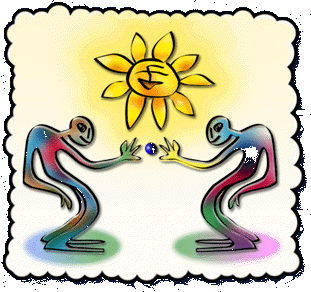 I am writing an application for an EU fund, for a 3 years training programme for a youth center in Ommen. I was thinking that Levinas' philosophy is really relevant for intercultural learning. I proposed to write something about that as an attachment for the application and the organisation agreed. I suppose this text is much too long, but I first wanted to follow my own thoughts, I will make it shorter later...
I am writing an application for an EU fund, for a 3 years training programme for a youth center in Ommen. I was thinking that Levinas' philosophy is really relevant for intercultural learning. I proposed to write something about that as an attachment for the application and the organisation agreed. I suppose this text is much too long, but I first wanted to follow my own thoughts, I will make it shorter later...With the many countries that are taking part in the training programme, a considerable cultural diversity will be present in the training. In our trainings, the Olde Vechte tries to focus on what the participants have in common. We will concentrate on universal aspects of human thinking, feeling and acting, not too much on cultural differences.
Reason for this is that when you focus on cultural differences, that the risk of “labeling” others becomes big. Like: “Oh, I can see that you are typically Dutch, because you behave like this and that, a clear example of how the Dutch are all the same.” Humans are unique beings, you cannot find two persons in the whole world – no matter how much their personal background is similar – who are exactly the same (even not coming close to that, not even for twins). Nobody can stand in somebody else’s shoes. We cannot be reduced to our presumed (by others) characteristics, we cannot be reduced to the country, culture, religion, race or class that we belong to, we have our own unique identity which is so much more than just the groups / categories that we belong to.
The idea that we should treat every other person as a unique individual, without reducing that person to a collective category, is the central theme of the humanistic philosophy of the Jewish thinker Emmanuel Levinas.
“To be in direct relation with the Other, is not to thematize the Other, not to consider him in the same manner as one considers an object. In reality, the fact of being is what is most private; existence is the sole thing I cannot communicate; I can tell about it, but I cannot share my existence. Solitude thus appears as the isolation which marks the very event of being.”
I cannot stand in the shoes of somebody else, I can always only think my own thoughts. When I am alone, I am locked up in my own consciousness, there is only me and the objects around me. I can do to these objects what I like, since the objects cannot protest. But as soon as a person meets another person, the situation becomes totally different. Now I cannot treat that person as an object anymore, because what I do to him or her affects that person, affect another consciousness who has the same human rights as I have. So I can’t do just anything, I have to take the other into account. The way that I will start to realize this, is because the other makes an appeal to me, before I realize what’s happening. The other doesn’t accept that I try to reduce him or her to an object, it is the other consciousness which is resisting my attempt. It’s the appeal from the other which is done to me, which wakes me up from the selfish and isolated way that I was looking at the world, as if the whole universe is centered around me. Because I have to take the other into account, our relation becomes ethical. If I dehumanize the other my behaviour is morally bad. If I open myself up for the other and take my responsibility to listen to his appeal, then my behaviour is morally good.
Before I started to think, reflect on this, before I realize what is happening, the other already made an appeal to me. The humanism from Levinas is not a dogmatic set of rules telling people how they should live, it’s an explanation of a phenomenon that happens automatically: the other makes an appeal to me and through that our relation becomes ethical.
 What the other says to me in the first place – when I look into his face – is: “don’t kill me”. The command “thou shalt not kill” can sometimes refer to killing in a literal sense, but it can also refer to the attempt from the first person to reduce the other to an object.
What the other says to me in the first place – when I look into his face – is: “don’t kill me”. The command “thou shalt not kill” can sometimes refer to killing in a literal sense, but it can also refer to the attempt from the first person to reduce the other to an object.With regard to the example I gave before, that I say to somebody: “Oh, I can see that you are typically Dutch, because you behave like this and that”; this is a way of reducing the other to an object, to the category of being Dutch. It’s a category with general collective characteristics. The other probably possesses some of these characteristics, but not all of them, and he also has got many other characteristics, which are probably not typically Dutch.
Who am I to label that person as typically Dutch, who am I to determine for him what he is like in essence? When I define / label him like that, I invent an image of him and I put that image on his forehead. After that I don’t look at or listen anymore to the real person, I only look at the image, the object that I invented. At that moment I dehumanize the other person, I treat him as an object.
This process of dehumanization can very easily lead to prejudices, discrimination and in the end to racism. Racism is a specific form of dehumanization of the other, based on race. Human beings are no longer treated as equal human beings, but as objects to which you can do what you like, who don’t have any rights and who cannot speak anymore, who aren’t being heard.
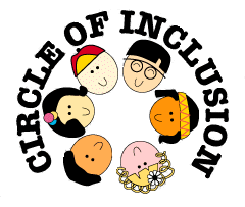 Sometimes cultures with different values will collide when they are confronted with each other. When people are not open-minded and tolerant, when they don’t try to understand each other and to search for a way to come closer to each other and to bridge differences and misunderstandings, the fear and hate for “the other” might grow. Both groups start to behave more aggressively towards each other. They withdraw themselves in their own community. The us vs them feeling is growing, and their own group is considered to be completely good and the other group as completely bad / evil. An image is invented in the minds of the first group in which the other group consists of demons. This is the process of dehumanization. Demons are completely evil, they are no longer considered as equal human beings, and that means that you can be aimed at their destruction, you can treat them as objects.
Sometimes cultures with different values will collide when they are confronted with each other. When people are not open-minded and tolerant, when they don’t try to understand each other and to search for a way to come closer to each other and to bridge differences and misunderstandings, the fear and hate for “the other” might grow. Both groups start to behave more aggressively towards each other. They withdraw themselves in their own community. The us vs them feeling is growing, and their own group is considered to be completely good and the other group as completely bad / evil. An image is invented in the minds of the first group in which the other group consists of demons. This is the process of dehumanization. Demons are completely evil, they are no longer considered as equal human beings, and that means that you can be aimed at their destruction, you can treat them as objects.Levinas offers tools and insight in how this process can be counteracted. The appeal from the other to me, the request to respond, it reaches me as soon as I look in the face of the other. So I should take my responsibility to respond. Instead of killing the other by inventing an image of him and treating him as an object, I should look the other in the eyes with an open mind, and listen to what that person has to say to me. If the other asks me for help I should help him if I can, unconditionally. I should welcome the stranger with open arms, unconditionally. I should realize that every other person is totally different from me, I am the only one who is thinking my own thoughts, I should not claim to possess the thoughts of another person, I should leave that up to him or her.
Inclusion means...
 (Intercultural) skills are needed to learn how to treat another person – no matter where he comes from – with respect. Skills like to show empathy, to be patient, to listen carefully, to be able to put your own views and prejudices aside for a while, etc.
(Intercultural) skills are needed to learn how to treat another person – no matter where he comes from – with respect. Skills like to show empathy, to be patient, to listen carefully, to be able to put your own views and prejudices aside for a while, etc.Clear communication is a very good tool to bridge cultural gaps. When people are able to speak the same language, to understand each other, they can come closer to each other without having to give up their own identity. The amount that people can understand from others is very big, even if they come from the other side of the world. Cultural differences are not the only or the main differences. Personal differences are also very big. So maybe I am very different from my neighbor and similar to a stranger from far away.
To stop a process of dehumanization, concrete and intensive contact is very important. Prejudices don’t disappear with abstract information, they disappear when you meet real persons who don’t match with the image you had. When you get to know real persons from a different culture, you discover that you have many values, ideas and interests in common (like there are also many disagreements, but you will have these also with people from your own culture). And you see that they are individuals with their own characteristics, some of them you like, others you don’t like. But you start to see them as real people, not anymore as abstract categories. And with real people you have to think about how you treat them, what you are doing to them. You should not hurt them unnecessary. The more abstract and anonymous another culture is in the eyes of a person, the easier it will be to support inhuman behavior towards them. That is why it is very important to organize this kind of international and intercultural trainings - with an intensive contact between the participants and with the use of clear methods to improve intercultural contact as central elements.
5/18/2006
Roestige Rita - recht door zee
5/15/2006
To realise one's destiny is a person's only obligation
 This time I am not going to write about Levinas and not about intercultural contact neither. This time I would like to write about something personal, something which occupies my mind a lot these days. As I did before, I would like to write about a novel from Paolo Coelho, this time about the novel “The Alchemist”.
This time I am not going to write about Levinas and not about intercultural contact neither. This time I would like to write about something personal, something which occupies my mind a lot these days. As I did before, I would like to write about a novel from Paolo Coelho, this time about the novel “The Alchemist”.I know somebody who is going through a very difficult time. In my opinion, what makes it so difficult, is that in the past year, he moved in the opposite direction of his destiny. According to Coelho, "to realize one's destiny is a person's only obligation", and it is also the only road that leads to true happiness, I think.
I think that we all have our own personal identity, we all have our personal inner nature, an individual and unique set of characteristics of the things that we like, our opinions and our talents / capabilities. We are born as a small seed and that seed has a potential of growing towards its destiny, the seed of the tree has a potential of the tree that it could become in the future. The potential has been present in the seed from the movement it came into existence. A seed for an orange tree will never turn out to have become a lemon tree once it is fully grown. If I try to turn my orange seed into a lemon tree, I will be very much frustrated because it will never work, my fruit will always have an orange colour instead of yellow. So I have to move towards my personal destiny, always, not towards a different destiny which doesn’t fit with my identity / my inner nature. And I should try everything to make my seed grow, to reach my full potential, whole my life should be aimed at moving in that direction, towards my destiny. And I can know which direction that should be by listening to my heart. Very often it is not possible for people to completely realise their dreams. Very often the seed is planted in bad ground, with not enough water, or with not enough space to grow. Then the orange tree doesn’t reach its full potential. But in fact it is still possible to be completely happy with your life, although you are very far away from your dreams. What matters most is that you are moving in the right direction, towards your personal treasure, your destiny. It doesn’t matter if the road is very long and difficult and if you don’t know if you will ever reach your treasure. What matters is that you know what you are looking for and which way you should go to move in that direction. You should never give up because you think it’s too difficult, and then start to move into a different direction, away from your destiny.
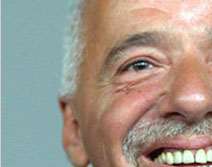 There’s a dialogue in the book between the main character and a strange old man:
There’s a dialogue in the book between the main character and a strange old man:"Hmm…" said the old man, looking at all sides of the book, as if it were some strange object. “This is an important book, but it's really irritating. It's a book that says the same thing almost all the other books in the world say," continued the old man. "It describes people's inability to choose their own destinies. And it ends up saying that everyone believes the world's greatest lie."
"What's the world's greatest lie?" the boy asked, completely surprised.
"It's this: that at a certain point in our lives, we lose control of what's happening to us, and our lives become controlled by fate. That's the world's greatest lie."
We should never believe that lie. We should never forget that we ourselves are driving the car of our life, we have the wheel in our hands, we can steer. It is not an automatic car that brings us anywhere, as if we could not influence the direction in which it is going. To make a choice is something you do yourself, nobody else can do that for you, nobody can take away your independence. Maybe there is not much that you can choose between, but that makes it even more important that you make the right choice / decision. To have the feeling that your life is living you, instead of that you live your life, that’s the very worst thing that can ever happen to you.
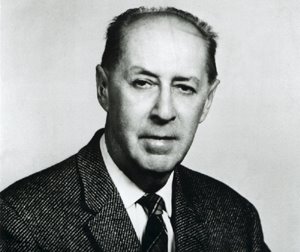 In the novel “Glow”, Sandor Marai explains that the most difficult thing for people is to really accept themselves exactly as they are:
In the novel “Glow”, Sandor Marai explains that the most difficult thing for people is to really accept themselves exactly as they are:“The most difficult thing to bear is to have a strong desire to become someone else than who you really are (and not to succeed in becoming someone else). Life is unbearable unless we totally accept everything which we mean for ourselves and for the world. We have to accept our character, our nature, including the mistakes we make, including our selfishness and greed, to which our understanding and experience can’t change anything. And we have to accept that we cannot fulfil all our desires in this world.”
That is very important I think, that we have to accept totally who we are, if I am a seed for an orange tree I have to totally accept that, which means that I should not try to become a lemon tree. I have the obligation to do all that I can to fully realise the potential that I have inside of me to become a big and beautiful orange tree.
And here are some lyrics from DJ Tiesto about this theme:
You can travel the world
But you can't run away
From the person you are in your heart
You can be who you want to be
Make us believe in you
Keep all your light in the dark
You're searching for truth
You must look in the mirror
And make sense of what you can see
Just be
They say learning to love yourself
Is the first step
But you take what you want to be real
Flying on plains, exotic locations
Won't teach you
How to feel
Beside the fact
That you are who you are
And nothing can change that believe
Just be
Cause now I know
Is not so far
To where I go
There's not this spot
Since this I feel
I need
To just be
I was lost
And I'm still lost
But I feel so much better
Cause now I know
Is not so far
To where I go
There's not this spot
Since this I feel
I need
To just be
Just be
And I find it very important to feel passion, as a strong warm fire which burns inside, a motor that keeps me moving towards my destiny, that gives me power / energy / a desire to move. For me to feel that passion is what makes my life meaningful.
And here’s a song from Eels about how you are really living when you feel that passion:
Do you know what it's like to fall on the floor
And cry your guts out 'til you got no more
Hey man now you're really living
Have you ever made love to a beautiful girl
Made you feel like it's not such a bad world
Hey man now you're really living
Now you're really giving everything
And you're really getting all you gave
Now you're really living what
This life is all about
Do you know what it's like to care too much
'bout someone that you're never gonna get to touch
Hey man now you're really living
Have you ever sat down in the fresh cut grass
And thought about the moment and when it will pass
Hey man now you're really living
Now what would you say if I told you that
Everyone thinks you're a crazy old cat
Hey man now you're really living
Just saw the sun rise over the hill
Never used to give me much of a thrill
But hey man now I'm really living
5/04/2006
Justice and tolerance
So here's the text (I changed the names of Orkuters to make it more anonymously).
What does it mean, to be biased?
Definition of Cambridge Dictionaries Online:
“A tendency to support or oppose a particular person or thing in an unfair way by allowing personal opinions to influence your judgment.”
Am I biased as a moderator? I do have a tendency to support or oppose particular things / views, but is it in an unfair way and do I allow personal opinions to influence my judgment?
Some people support certain views and others support other views. People whose personal views are completely neutral don’t exist, (political) positions are never completely in the middle but always in a more or less radical way left-wing or right-wing or something that cannot be located on that scale but then on some other scale. If a person has an opinion about a political issue it means the person is not neutral.
And there is nothing wrong with that of course, we are all entitled to have our own opinions. But let me make clear that I try to behave totally neutral and unbiased as a moderator. If I am “pro-Islam” or something it doesn’t mean that I will favour Muslims in IR and treat them different from non-Muslims. I try my best to be completely neutral and treat everybody the same way, independent of their background. (I can make mistakes in that sometimes because I am only human but the intention is unbiasedness.)
It is very important to make a distinction between my personal views and my moderation policies, which I try to apply while putting aside my personal views.
Blind justice...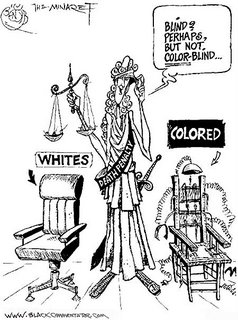 And now let’s talk about my personal views (forget for a while about moderation policies):
And now let’s talk about my personal views (forget for a while about moderation policies):
My position is that I find it important to strive for what I consider to be justice. Eveline formulated it as that I would “support those who are weak and downtrodden and need help.” That’s not the way I would formulate it. I want to change situations which I regard as unjust, situations in which people are treated unequally, treated with no respect, socially excluded, based on their background (based on irrelevant factors for that treatment), situations in which people are being oppressed or discriminated. This doesn’t mean that people who are treated like that are weak, they can be very strong and resist hard. As I said before there’s a South-African saying that you have to ask the sheep who is the wolf. That some people have the positions of sheep in the world and others the positions of wolves, that doesn’t mean that the sheep are weak and the wolves are strong. It means that the wolves have ended up in the position of oppressors and the sheep in the position of being oppressed. This is not due to their weakness but due to something like bad luck. If black people are statistically more often poor in the world than white people, this doesn’t mean that black people are weaker than white people, it means that if you are born with a black skin you have a bigger chance of being poor, so you had bad luck in that respect. And I will try my best to help poor people, not because they are weak but because I find it unfair that they have to live in such difficult circumstances while others have more money than they can spend.
When I look at the confrontations which are taking place in International Relations, the division between West vs East, North vs South, secularism vs Islam, white vs black, in my struggle for justice I locate the sheep position usually at the other side of where I am located myself, geographically. Maybe secularism vs Islam is a strange distinction in this. But I think that West vs East in practice often refers to that. It would be nice if it would be normal people (Muslims and non-Muslims in East and West) vs terrorists, but in practice it is often not like that. Of course there are also divisions internally in the East and in the West, but what I mentioned are in my view the big lines in this globalised world.
What I personally find one of the most difficult things, and which is something of which I can see that others are having difficulties with it as well, is to be tolerant towards people who have ideas which are in my view very harmful towards what I consider as justice. Simon and Brian are two persons in the International Relations community towards whom that counts most strongly for me. And the funny thing is that they think exactly the same about me but the other way around. As persons I find them friendly / sympathetic and I have had enough discussions with them to understand more or less their way of reasoning / to see the logic in it. But still I think that their way of thinking is very harmful for the people who have the position of sheep in the world.
I would like to describe an example. In Discourse Analysis and Racism, Simon wrote: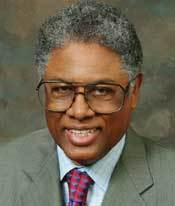 “Here's another personal story from Thomas Sowell who recently wrote about his student days. He said the only thing that saved him from failure was a white (!) student who told him "You're really an abysmal slacker! Why do you constantly screw around instead of studying? If you keep going like a loser, you'll never make it". According to Sowell, up to that point, he thought he was working really hard. But then he started observing the white students and found that his room mate was correct and he started working for real. He passed with honours.”
“Here's another personal story from Thomas Sowell who recently wrote about his student days. He said the only thing that saved him from failure was a white (!) student who told him "You're really an abysmal slacker! Why do you constantly screw around instead of studying? If you keep going like a loser, you'll never make it". According to Sowell, up to that point, he thought he was working really hard. But then he started observing the white students and found that his room mate was correct and he started working for real. He passed with honours.”
For your information: Sowell is black. There are many students in the world. Some are white and some are black. Some students study seriously, some don’t. It is not the case that all white students study seriously and all black students don’t. Statistically there are relatively more white people with university degrees than black people. This is due to the economical inequality in the world. Black people are more often born in a position where they have less chances to obtain a university degree. The white student called the black student an abysmal slacker and looser because he was black, the white student would not have said it like that if the other student was white as well. This is something I find very harmful for that black student. When people say often enough to him that he is a black looser, he will start to believe that himself and there’s a big chance that he will start to act like a looser / criminal. I see this happening around me very often. So I claim that the effect of the “recommendation” from the white student is usually opposite to what Simon (and Sowell!) claimed. If the white student would have said it in a neutral way, in the same way as he would say it to a white person, then it would be fine, something like: “What are you doing Thomas, if you go on like this you won’t get your degree and then it will be much more difficult to find a good job afterwards, is that what you really want?”
The white student called the black student an abysmal slacker and looser because he was black, the white student would not have said it like that if the other student was white as well. This is something I find very harmful for that black student. When people say often enough to him that he is a black looser, he will start to believe that himself and there’s a big chance that he will start to act like a looser / criminal. I see this happening around me very often. So I claim that the effect of the “recommendation” from the white student is usually opposite to what Simon (and Sowell!) claimed. If the white student would have said it in a neutral way, in the same way as he would say it to a white person, then it would be fine, something like: “What are you doing Thomas, if you go on like this you won’t get your degree and then it will be much more difficult to find a good job afterwards, is that what you really want?”
Sometimes I think to myself, do I want to be friends with someone who has that kind of ideas towards people with a different colour of skin? How would I feel if I would be black myself? That is the most difficult form of tolerance I think, that I decide: “I accept that Simon has this kind of views which are totally opposite to what I consider as justice. I accept that he is like that and we remain friends.” I can see that many fights start in IR because people are not willing to accept that, and that is very understandable. That’s the reason why this kind of intercultural discussion groups have a big chance of exploding.
